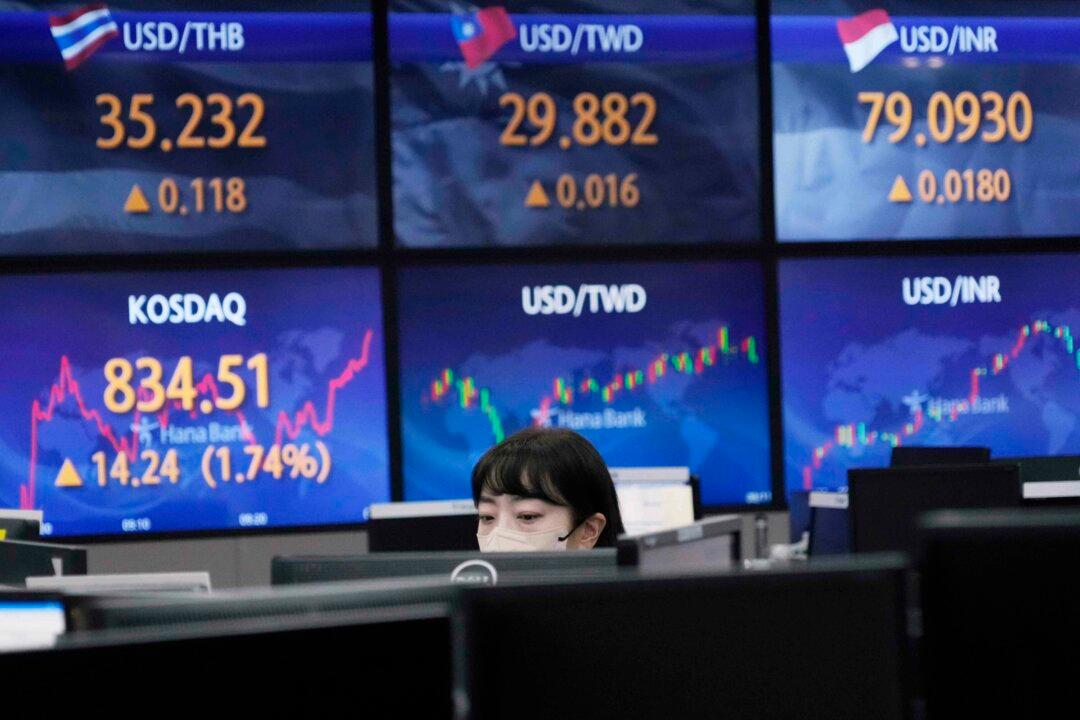BANGKOK—World shares were mixed Thursday after Wall Street benchmarks closed at three-month highs as investors cheered a report showing inflation cooled more than expected in July.
U.S. futures edged higher and oil prices also advanced.

BANGKOK—World shares were mixed Thursday after Wall Street benchmarks closed at three-month highs as investors cheered a report showing inflation cooled more than expected in July.
U.S. futures edged higher and oil prices also advanced.